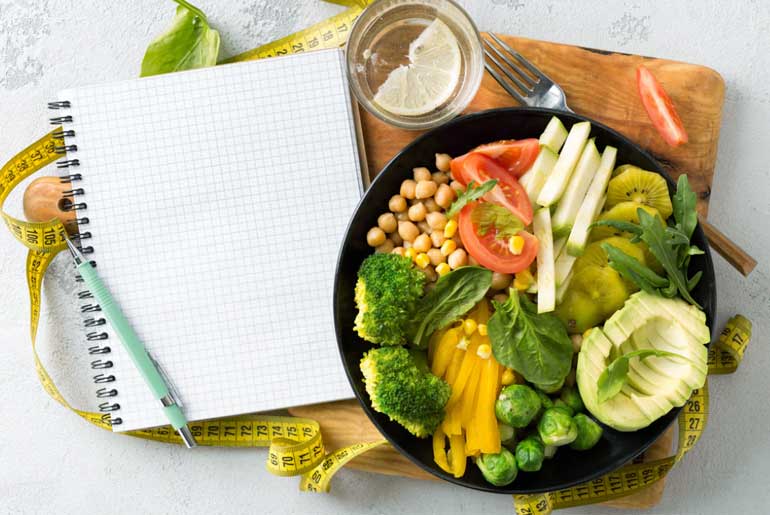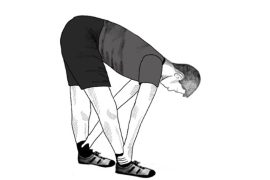With Diwali just around the corner, a little pre-festive restraint can make a significant difference in avoiding unwanted weight gain during the five days of indulgence. Incorporating a pre-Diwali Diet Plan is essential to prepare your body for the festivities. Choosing a diet rich in fiber and high-quality protein can help you stay fit and energetic. This not only nourishes your body but also keeps your energy levels high, ensuring you’re well-prepared for the upcoming celebrations while maintaining your health and well-being.
Prepare for Diwali with a 7-day Diwali diet plan that not only aids in weight loss but also leaves you feeling and looking better. Even amidst the festive season’s tempting high-calorie indulgences and sweet treats, these healthy practices can help you avoid piling up extra calories. Strike a balance between enjoying the festivities and maintaining your well-being by following this plan, which promotes a healthier lifestyle during Diwali and beyond, contributing to both your physical and mental health.
Diwali diet plan:
Day 1:
- Breakfast: Oatmeal topped with fresh fruits and nuts is a healthy choice. Oatmeal is a good source of fiber and complex carbohydrates, while fruits provide essential vitamins and antioxidants. Nuts add healthy fats and protein to the meal.
- Lunch: A colorful mixed salad with various vegetables and a lean protein source like grilled chicken or tofu is a great option. Salads are rich in vitamins, minerals, and fiber, and lean proteins help keep you full and satisfied.
- Evening: Having a cup of green tea in the evening is a good choice. Green tea is known for its potential health benefits, including antioxidants and a moderate caffeine content for a little energy boost.
- Dinner: Your dinner consists of brown rice, steamed vegetables, and a side of protein-rich dal (lentil curry). Brown rice is a whole grain and a healthier choice compared to white rice. Steamed vegetables provide essential nutrients, and dal is a good source of plant-based protein and fiber.
Day 2:
- Breakfast: A vegetable and cheese omelette is a good source of protein and essential nutrients. The vegetables add fiber and vitamins, and the cheese provides additional protein and flavor.
- Lunch: Quinoa and chickpea salad with a light vinaigrette dressing is a healthy choice. Quinoa is a whole grain rich in protein and fiber, and chickpeas are a good source of plant-based protein. The vinaigrette dressing adds flavor without excessive calories.
- Evening: A bowl of fruit salad makes for a refreshing and nutritious evening snack. Fruits are packed with vitamins, minerals, and antioxidants.
- Dinner: Grilled fish or a vegetable stir-fry for dinner offers options for both animal-based and plant-based protein sources. Fish is a great source of lean protein and omega-3 fatty acids, while a vegetable stir-fry provides a variety of nutrients from the vegetables.
Day 3:
- Breakfast: Greek yogurt topped with honey and a handful of berries is a great choice. Greek yogurt is rich in protein, probiotics, and calcium. Berries provide antioxidants and fiber, while honey adds natural sweetness.
- Lunch: A vegetable wrap with hummus is a healthy lunch option. Vegetables offer fiber and various vitamins, while hummus provides healthy fats and protein. Wrapping them in a whole-grain tortilla or pita adds complex carbohydrates.
- Evening: Snacking on a bowl of fresh fruits in the evening is a wholesome choice. Fruits are nutrient-dense and provide vitamins, minerals, and natural sugars.
- Dinner: Your dinner options include lean beef or mushroom risotto. Lean beef is a source of high-quality protein and essential nutrients, while mushroom risotto is a vegetarian option with a creamy texture and plenty of flavor. Both choices offer variety and can be adjusted based on your dietary preferences.
Day 4:
- Breakfast: A breakfast smoothie made from spinach, banana, and almond milk is a great way to start your day. Spinach is rich in vitamins and minerals, while the banana adds natural sweetness and additional nutrients. Almond milk provides a creamy base without dairy.
- Lunch: Lentil soup with whole-grain bread is a nutritious and filling option. Lentils are a great source of plant-based protein and fiber, while whole-grain bread adds complex carbohydrates and more fiber.
- Dinner: Baked sweet potato with steamed broccoli and a green salad is a well-rounded dinner choice. Sweet potatoes are rich in complex carbohydrates and vitamins, while broccoli is a cruciferous vegetable packed with nutrients. The green salad adds freshness and additional vitamins and minerals.
Day 5:
- Breakfast: Scrambled eggs with spinach and tomatoes make for a protein-rich and nutrient-packed breakfast. Eggs provide high-quality protein, and spinach and tomatoes add vitamins, minerals, and antioxidants.
- Lunch: A quinoa and black bean bowl is a delicious and nutritious choice for lunch. Quinoa is a whole grain rich in protein and fiber, while black beans provide plant-based protein and additional fiber. This combination offers a variety of essential nutrients.
- Evening: Snacking on sliced cucumbers and carrots in the evening is a low-calorie and healthy option. Cucumbers and carrots are hydrating and offer vitamins and minerals.
- Dinner: Roasted chicken with sautéed asparagus is a well-balanced dinner. Chicken is a good source of lean protein, and asparagus is a nutrient-rich vegetable. This meal provides protein, vitamins, and fiber.
Day 6:
- Breakfast: Muesli topped with low-fat yogurt and fresh fruit is a great way to start the day. Muesli provides fiber and complex carbohydrates, yogurt offers protein and probiotics, and fresh fruit adds vitamins and natural sweetness.
- Lunch: Minestrone soup with a whole-grain roll is a healthy and filling choice. The soup contains a variety of vegetables, beans, and often pasta, providing fiber, vitamins, and minerals. The whole-grain roll adds complex carbohydrates and more fiber.
- Dinner: Grilled shrimp or a vegetable curry with brown rice is a versatile dinner option. Grilled shrimp is a lean source of protein, while a vegetable curry provides plant-based protein and a variety of nutrients. Brown rice is a whole grain and offers complex carbohydrates.
Day 7:
- Breakfast: Whole-grain pancakes topped with Greek yogurt and honey make for a satisfying and nutritious breakfast. Whole-grain pancakes provide complex carbohydrates, and Greek yogurt offers protein and probiotics. Honey adds natural sweetness.
- Lunch: A mixed greens salad with grilled tofu and a light dressing is a wholesome lunch option. The salad provides a variety of vitamins, minerals, and fiber, while grilled tofu is a plant-based protein source. The light dressing adds flavor without excess calories.
- Evening: Snacking on a handful of mixed nuts in the evening is a great way to get some extra energy. Nuts are a good source of healthy fats and protein.
- Dinner: Grilled salmon with steamed green beans is a dinner choice rich in omega-3 fatty acids and fiber. Salmon is a fatty fish that provides protein and essential fats, and green beans are a nutrient-rich vegetable.
In this 7-day Diwali diet plan, the emphasis is on balanced and nutritious meals, with a variety of foods rich in essential nutrients. It encourages the consumption of whole grains, lean proteins, fruits, and vegetables while minimizing sugary beverages and alcohol to avoid unnecessary calories. Staying well-hydrated with water and herbal teas is a priority. Moreover, incorporating light physical activity, such as brisk walks or yoga sessions, is recommended to maintain an active metabolism and boost overall well-being throughout the festive season. This holistic approach promotes both health and enjoyment during the Diwali celebrations.
Disclaimer:
The information contained in this article is for educational and informational purposes only and is not intended as a health advice. We would ask you to consult a qualified professional or medical expert to gain additional knowledge before you choose to consume any product or perform any exercise.







